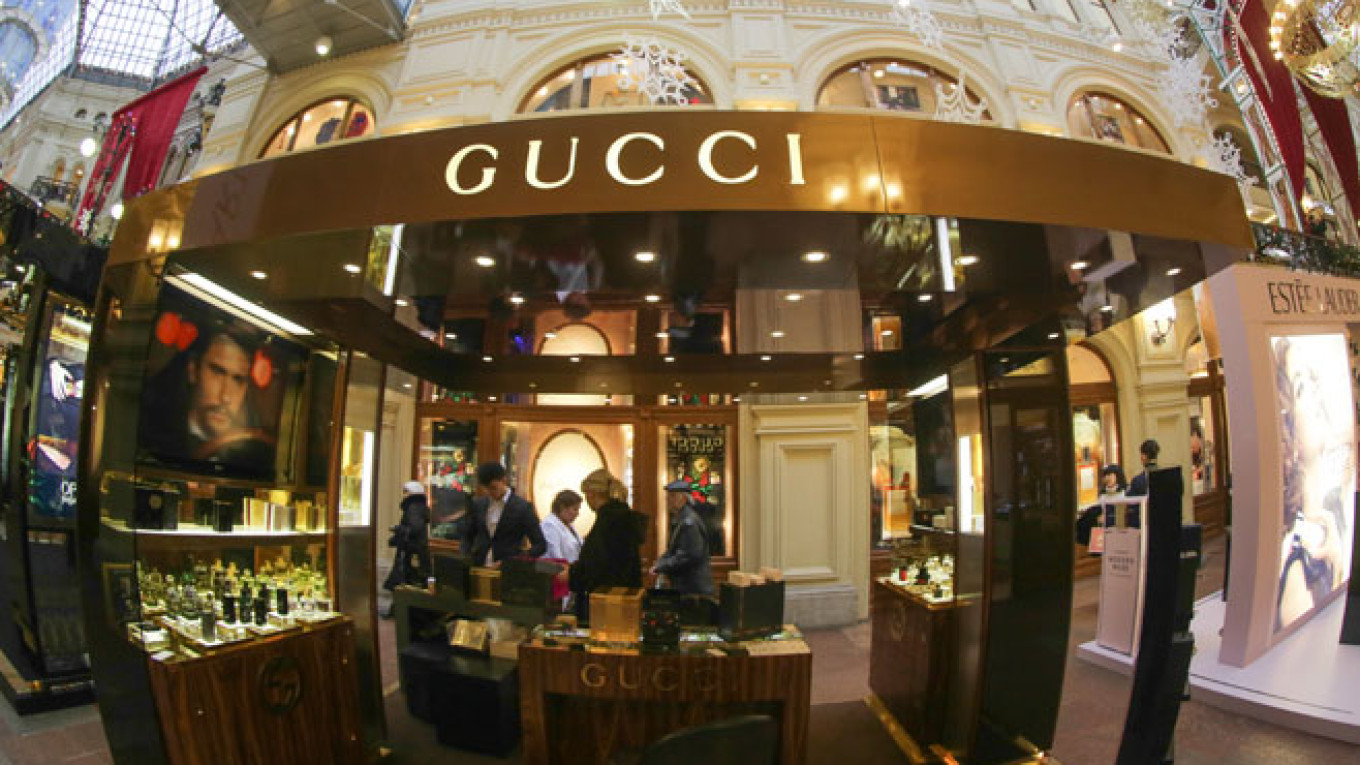?¤?µ????: fake (duh)
Usually when a foreign word is picked up in Russian, it's because there isn't an exact native equivalent for what it denotes, like ???µ???»?°???? (deadline). Or because Russians want a word with different connotations, like ???µ???µ???¶?µ?€ (Western-style manager) instead of ?????€?°???»?µ???µ?† (Soviet-style manager). But sometimes a word gets borrowed because Russians seem to appreciate the range of meanings it has, or how easy it is to say and use. Such is the case with ?„?µ???? (fake).
?¤?µ???? or the adjective ?„?µ?????????‹?? can refer to anything ersatz. For example, it's what you call those great deals on brand-name clothes and accessories. ???‹ ?????????»?? ?„?µ?????????‹?µ ???€??????????????, ?????µ?»?°?????‹?µ ?? ?±?»???¶?°?????µ?? ?????????°?»?µ — ?±?€?µ???? ???±???±?°??. (We bought fake sneakers made in some cellar nearby. The brand name was Abibas.) ?¤?µ???? can refer to drugs. ?????? ?????????? ?????€?????????? ???€?µ???°?€?°?‚?° ?»???…?? ?????°?€???‚ ???µ???‘???‹?? ?„?µ????. (Under the guise of an expensive drug, they pass off cheap fakes to the unsuspecting public.)
But lately it is used most frequently to describe falsified news stories, photos and videos.
Some of these false stories seemed to be designed simply to draw traffic to a site. ?¤?µ???? ???µ?????†?°: "???????????‚??" ?? ?????°?????±?µ 12-?»?µ?‚???µ?? ?????€???µ?¶???????? ???µ?????‡???? ?? 34-?»?µ?‚???µ???? ?????¶?‡?????‹. (Fake of the month — "news report" about the marriage of a 12-year-old Norwegian girl to a 34-year-old man.) Some have to do with events around the world, in various times and places. A glance at the Internet will inform you that, for example: ?’?‹???°?????° ?°???µ?€?????°???†?µ?? ???° ?›?????? ?? 1969? ??. — ???‚?? ?„?µ????. (The American landing on the moon in 1969 was faked.) But most ?„?µ???? examples have to do with the war in Ukraine: ???‡?µ?€?µ???????? ?„?µ???? ?€?????????????????… ?????? ?? ?????±?‹?‚?????… ?? ???????‚???‡?????? ?????€?°?????µ. (The latest fake report from the Russian media about events in eastern Ukraine.)
There are plenty of native Russian words for various kinds of fakes. When official Moscow responds to a fake news report, they don't use the borrowed English word: ?????” ? ?????????? ???°?·???°?» ?„?°?»?????????????? ?????¶?µ?‚ ?‚?µ?»?µ???????µ?????? ?›?°?‚??????. (The Russian Ministry of Foreign Affairs called the Latvian television report a fake.) ?¤?°?»???????????° also seems to be slang from ?„?°?»???????„?????°?†???? (falsification) and refers to a document, report or other paper fake. It made its appearance on the language scene right after the 1917 Revolution. I was amused — in a sad sort of way — to see how little has changed over the years. An old Soviet dictionary uses this example to help define the word: ?°???‚?????????µ?‚???????µ ?„?°?»???????????? ???????µ?€???°?»?????‚???? (the imperialists' fake anti-Soviet documents).
But ?„?°?»???????????° can also be counterfeit cash. Pay attention if you see a newspaper announcement like this: ?’???????°?????µ, ?„?°?»???????????°! ???‡?°???‚???»?????? ???»???‡?°?? ???‹?????»?µ?????? ?????????µ?»?????‹?… ???µ???µ?¶???‹?… ?????????€ ???????‚?????????‚?????? 5 000 ?€???±?»?µ??. (Watch out for counterfeit bills! More fake 5,000 ruble notes have been discovered.)
The standard Russian word for a fake of something made or manufactured is ?????????µ?»???°. This is nicely deciphered as ?????? (in imitation of) and the noun from the verb ???µ?»?°?‚?? (something made). ???°?? ???‚?»???‡???‚?? ???€?????????°?» ???‚ ?????????µ?»????? (How can you tell an original from a fake?) It's also the word used to describe a forged signature. ???°?? ?·?°?‰???‚???‚?? ?????????????? ???‚ ?????????µ?»????? (How can you keep your signature from being forged?)
Reading about fakes can make you a bit paranoid. One blogger plaintively asked: ???°?? ?·?°?‰???‰?°?‚?????? ???‚ ?„?µ????????? (How can you protect yourself from fakes?) The answer was a new twist on an old Russian expression: ???????????? ???µ ???????µ?€????, ?° ???€?????µ?€???? ?????‘. (Don't trust anyone, and double-check everything.)
Michele A. Berdy, a Moscow-based translator and interpreter, is author of "The Russian Word's Worth" (Glas), a collection of her columns.
A Message from The Moscow Times:
Dear readers,
We are facing unprecedented challenges. Russia's Prosecutor General's Office has designated The Moscow Times as an "undesirable" organization, criminalizing our work and putting our staff at risk of prosecution. This follows our earlier unjust labeling as a "foreign agent."
These actions are direct attempts to silence independent journalism in Russia. The authorities claim our work "discredits the decisions of the Russian leadership." We see things differently: we strive to provide accurate, unbiased reporting on Russia.
We, the journalists of The Moscow Times, refuse to be silenced. But to continue our work, we need your help.
Your support, no matter how small, makes a world of difference. If you can, please support us monthly starting from just $2. It's quick to set up, and every contribution makes a significant impact.
By supporting The Moscow Times, you're defending open, independent journalism in the face of repression. Thank you for standing with us.
Remind me later.


